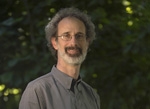 Peter Gleick
Peter Gleick
The source of the documents revealing the strategy of the Heartland Institute's campaign to undermine the public's understanding of climate science — including by producing and distributing K-12 curriculum materials propounding climate change denial — revealed himself to be Dr. Peter Gleick, the hydroclimatologist who heads the Pacific Institute for Studies in Development, Environment, and Security.
In a February 20, 2012, statement posted at the Huffington Post, Gleick explained that at the beginning of the year, he received a document "describing what appeared to be details of the Heartland Institute's climate program strategy." Attempting to confirm the accuracy of the information, he continued, "I solicited and received additional materials directly from the Heartland Institute under someone else's name."
Gleick expressed regret for his actions, writing, "My judgment was blinded by my frustration with the ongoing efforts — often anonymous, well-funded, and coordinated — to attack climate science and scientists and prevent this debate, and by the lack of transparency of the organizations involved. Nevertheless I deeply regret my own actions in this case. I offer my personal apologies to all those affected."
As part of NCSE's expansion to defend the teaching of climate science, Gleick had agreed to join NCSE's board of directors. On the same day as he posted his statement, however, he apologized to NCSE for his behavior with regard to the Heartland Institute documents and offered to withdraw from the board, on which he was scheduled to begin serving as of February 25, 2012. His offer was accepted.
"Gleick obtained and disseminated these documents without the knowledge of anyone here," NCSE's executive director Eugenie C. Scott commented, "and we do not condone his doing so." But, she added, "they show that NCSE was right to broaden its scope to include the teaching of climate science. There really are coordinated attempts to undermine the teaching of climate science, and NCSE is needed to help to thwart them."
